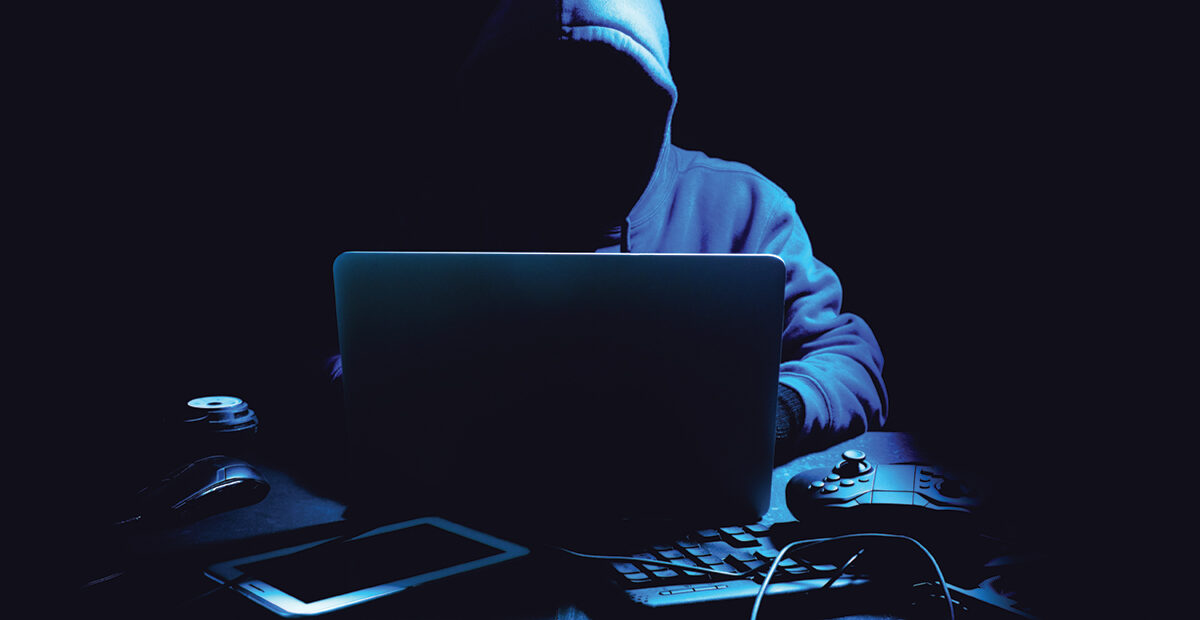
Privacy Concerns in Policing Through Social Media Surveillance
 By Benjamin Roussey
By Benjamin Roussey
In the interconnected world of the 21st century, the rise of social media has fundamentally transformed the means of communication and expression. Based on this, the increasing use of social media surveillance by law enforcement agencies has become a contentious issue, sparking debates surrounding privacy rights and the balance between public safety and individual liberties. It has also led to mounting concerns over the potential chilling effect on individuals’ freedom of speech and expression and a threat to the core principles of a democratic society.
The rise of social media surveillance in policing
Law enforcement agencies across the United States have increasingly turned to social media platforms as valuable sources of information. The prevalence of user-generated content on platforms like Facebook, X (formerly Twitter), Instagram and YouTube has provided authorities with unprecedented access to real-time data, aiding in investigations, crime prevention and public safety efforts.
Social media surveillance encompasses various methods, including monitoring public posts, analyzing metadata, utilizing facial recognition technology and even undercover online activities. While these approaches can enhance law enforcement capabilities, the potential infringement on individuals’ privacy rights is a serious issue.
Privacy implications
Mass surveillance and data collection
One of the primary privacy concerns is the scale at which social media surveillance operates. Law enforcement agencies can collect vast amounts of data on individuals, even those not suspected of any criminal activity. This mass surveillance raises questions about the proportionality of the intrusion into people’s private lives.
Lack of transparency
Critics argue that the lack of transparency surrounding social media surveillance practices contributes to the erosion of trust between law enforcement agencies and the public. Many agencies are reluctant to disclose the extent of their monitoring activities, leaving citizens unaware of the potential scrutiny they may be under.
Inaccuracies and bias
Social media surveillance tools, including facial recognition technology, have been criticized for their inaccuracies and potential bias, particularly against minority communities. The reliance on such tools without proper oversight may lead to false identifications and unjust consequences for innocent individuals.
The psychological impact of social media surveillance
The psychological impact of social media surveillance by law enforcement on individuals and communities can be damaging in multiple ways.
Surveillance anxiety and stress
Social media surveillance introduces a heightened sense of awareness and anxiety among users. The knowledge that one’s online activities may be under scrutiny can induce stress and anxiety, impacting mental well-being. Individuals may alter their online behavior, self-censor or even disengage from social media to mitigate these psychological stressors.
Chilling effect on free expression
The fear of surveillance can lead to a chilling effect on free expression. Individuals may hesitate to share dissenting opinions or controversial views or to engage in open discourse due to concerns about potential consequences. This self-censorship undermines the free exchange of ideas, an essential component of vibrant democracies.
Impact on personal autonomy
Social media surveillance challenges the notion of personal autonomy in digital spaces. The awareness that one is being observed may influence decision-making processes and online interactions, eroding the autonomy individuals should have in expressing themselves freely without fear of repercussion.
Self-censorship and modified online personas
Social media surveillance fosters an environment where individuals may engage in self-censorship to avoid potential scrutiny. Users may modify their online personas, curating content and expressions to align with perceived societal norms or avoid controversial topics. This adaptation of behavior in response to surveillance not only compromises authenticity but also impacts the individual’s psychological well-being.
Psychological impact on activists and dissenters
Individuals engaged in activism or dissenting movements may experience heightened psychological stress due to targeted surveillance. The fear of retaliation or being monitored can create an environment of self-censorship, hindering the effectiveness of these movements and potentially impacting the mental health of activists.
Normalization of surveillance
The normalization of social media surveillance can desensitize individuals to the idea of constant monitoring. Over time, this normalization may contribute to a society where pervasive surveillance is accepted as the norm, raising concerns about the long-term impact on individual and collective psyches.
 The mechanisms of social media surveillance by law enforcement agencies
The mechanisms of social media surveillance by law enforcement agencies
With advancements in technology, the law enforcement agencies in the U.S. are employing increasingly intricate social media surveillance mechanisms with implications for privacy and civil liberties.
Automated monitoring and data collection
Law enforcement agencies utilize advanced algorithms and automated tools to monitor social media platforms for potential threats or criminal activities. These tools can analyze vast amounts of data in real-time, flagging content that may be of interest to investigators. Automated data collection allows law enforcement to keep track of trends, identify potential risks and respond promptly to emerging threats.
Keyword analysis and sentiment tracking
One key mechanism involves the use of keyword analysis and sentiment tracking. Law enforcement agencies employ algorithms that search for specific terms, phrases or keywords related to criminal activities, terrorism or other threats. With that said, sentiment analysis helps identify posts with potentially threatening or suspicious language, aiding in the early detection of potential risks.
Social network analysis
Social network analysis is another powerful tool used by law enforcement to map relationships and connections between individuals on social media. By examining the network of interactions, investigators can identify key figures, track the flow of information, and uncover potential criminal networks. This method is particularly valuable in cases involving organized crime, terrorism or other complex criminal activities.
Geotagging and location tracking
Many social media platforms allow users to geotag their posts, revealing their location at the time of posting. Law enforcement agencies leverage this information for investigative purposes, enabling them to track the movements of individuals, identify crime hotspots and gather evidence related to specific incidents. Besides, the use of location data raises concerns about privacy and the potential for abuse.
Collaboration with social media companies
Law enforcement agencies often collaborate with social media companies to access user data. This collaboration may involve requesting information through legal processes such as subpoenas, warrants or court orders. The sharing of data raises important questions about user privacy and the need for transparent protocols to ensure that law enforcement actions are conducted within legal boundaries.
Social media surveillance can perpetuate power imbalances and reinforce social inequalities
Social media surveillance by law enforcement can perpetuate and exacerbate societal disparities in multifaceted ways.
Targeting of marginalized communities
Social media surveillance by law enforcement agencies has been criticized for disproportionately targeting marginalized communities. The algorithms and mechanisms used for surveillance may exhibit biases that result in the over-policing of specific groups, including racial and ethnic minorities. This targeting not only amplifies existing social inequalities but also perpetuates systemic discrimination, contributing to a cycle of surveillance, suspicion and over-policing.
Amplifying preexisting biases
Automated surveillance tools often rely on algorithms to identify potential threats. Based on this, these algorithms can inadvertently perpetuate and amplify existing biases. If historical data used to train these algorithms reflects systemic biases, such as racial profiling, the surveillance systems may disproportionately focus on certain demographics, reinforcing and exacerbating social inequalities.
Stifling dissent and minority voices
Social media surveillance has the potential to stifle dissent and minority voices. Individuals from marginalized communities may fear reprisals or increased scrutiny, leading to self-censorship. This stifling of voices prevents these communities from fully participating in public discourse, undermining the principles of inclusivity and democracy.
Discriminatory policing practices
The information gathered through social media surveillance may influence policing practices in ways that disproportionately impact marginalized groups. For example, if law enforcement relies on social media data to allocate resources or determine surveillance priorities, it may inadvertently reinforce existing stereotypes and contribute to discriminatory policing practices.
 The legal framework surrounding social media surveillance
The legal framework surrounding social media surveillance
The legal framework surrounding social media surveillance varies across jurisdictions. In some cases, laws have struggled to keep pace with technological advancements, leading to ambiguity regarding the permissible scope and methods of monitoring. Establishing clear legal boundaries is crucial to safeguarding individual privacy rights.
Fourth Amendment and privacy rights
The Fourth Amendment to the U.S. Constitution protects citizens against unreasonable searches and seizures. In the context of social media surveillance, this means that law enforcement agencies must adhere to legal standards when accessing private information. Court-issued warrants, based on probable cause, are often required to access the content of private messages or other protected information on social media platforms.
Electronic Communications Privacy Act (ECPA)
The Electronic Communications Privacy Act (ECPA) in the U.S. establishes legal standards for the interception of electronic communications. While ECPA regulates the interception of wire, oral and electronic communications, its application to social media surveillance is not always straightforward. Ambiguities in the law have prompted calls for reform to ensure that it adequately addresses the challenges posed by evolving communication technologies.
First Amendment considerations
In the U.S., the First Amendment protects freedom of speech, and any attempt to regulate speech must withstand strict scrutiny. The challenge arises when social media surveillance potentially chills individuals’ willingness to express themselves freely online. Courts must carefully weigh the government’s interest in public safety against the potential infringement on First Amendment rights.
Balancing public safety and individual privacy
Necessity and proportionality
Advocates for social media surveillance argue that it is a necessary tool in the modern era for preventing and solving crimes. Taking this into account, finding a balance between the necessity of these surveillance practices and the proportionality of their impact on individual privacy remains a significant challenge.
Accountability and oversight
To address privacy concerns, there is a growing call for increased accountability and oversight of social media surveillance activities. Implementing robust mechanisms for transparency, independent audits and judicial review can help ensure that these tools are used responsibly and within legal boundaries.
 The right to privacy is a fundamental pillar of freedom of expression in a democratic society
The right to privacy is a fundamental pillar of freedom of expression in a democratic society
Privacy concerns in policing through social media surveillance represent a complex and evolving issue. Striking a balance between public safety imperatives and protecting individual privacy rights requires careful consideration of legal, ethical and societal implications. As technology continues to advance, policymakers, law enforcement agencies and the public must collaborate to establish clear guidelines that safeguard privacy while harnessing the benefits of social media surveillance for the greater good in a democratic society.



